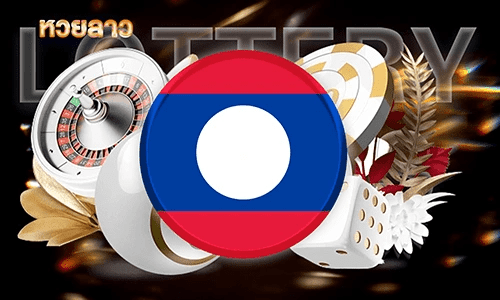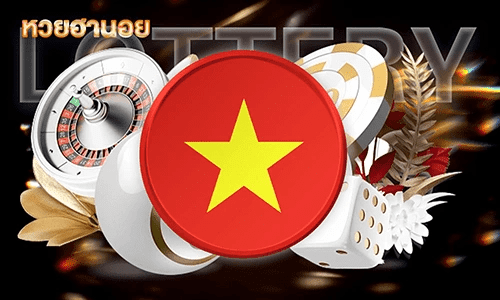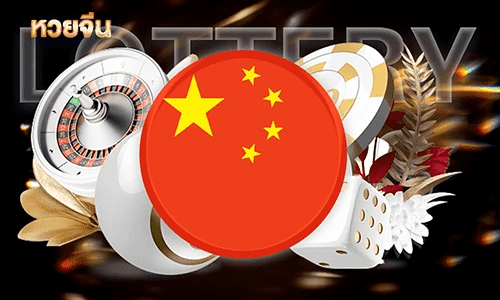JIMMY888 เว็บสล็อตใหญ่ใจดี แตกยับรับเละ เทหมดหน้าตัก ใจฟูสุด












































สุดยอดประสบการณ์สล็อตที่เขย่าวงการ JIMMY888 เว็บสล็อตใหญ่ใจดี เว็บสล็อตที่เล่นแล้วใจฟูแบบสุดๆ แจกหนัก แตกยับทุกค่าย เบทแค่ไม่กี่บาทก็มีลุ้นรับโบนัสหลักพันหลักหมื่นง่ายๆ ใจดีแบบไม่เกรงใจเงินในระบบตัวเองเลย หัวใจพองโต ความสุขเอ่อล้นจนแทบระเบิด ทั้งหมดนี้เกิดขึ้นได้บนแพลตฟอร์มสุดเสถียร เกมคุณภาพเยี่ยมจากค่ายดัง ที่การันตีความยุติธรรม ไม่ต้องโยกเงิน ไม่ต้องวุ่นวาย และที่สำคัญคือเล่นแล้วไม่รู้สึกถูกเอาเปรียบ เพราะแตกจริง จ่ายจริง เข้ามาสัมผัสความรู้สึก แตกยับรับเละ วันนี้ แล้วคุณจะรู้ว่าสวรรค์ของนักปั่นสล็อตมีอยู่จริงดูแลทุกระดับฉบับสล็อตเว็บตรง
เปิดปฐมบท ทำไม JIMMY888 ถึงเป็น เว็บสล็อตใหญ่ใจดี ที่ต้องลอง?
เว็บสล็อต JIMMY888 ท่ามกลางสมรภูมิเว็บสล็อตออนไลน์ที่ดุเดือด เว็บของเรา กลับผงาดขึ้นมาอย่างโดดเด่น พร้อมกิตติศัพท์ที่บอกต่อกันปากต่อปากว่าเป็น “เว็บสล็อตใหญ่ใจดี” คำถามคือ อะไรคือเบื้องหลังสมญานามนี้ และทำไมมันถึงกลายเป็นหมุดหมายสำคัญที่นักปั่นสล็อตทุกคนต่างพูดเป็นเสียงเดียวกันว่า “ต้องลอง”? บทความนี้คือปฐมบทที่จะพาคุณไขความลับนั้น คำว่า “ใหญ่” ไม่ได้หมายถึงแค่ขนาด แต่คืออาณาจักรเกมสล็อตคุณภาพคับแก้วจากทั่วโลก ความมั่นคงของระบบที่เชื่อถือได้ และความน่าเชื่อถือระดับมืออาชีพ ส่วนคำว่า “ใจดี” นั้นสะท้อนออกมาเป็นการกระทำที่จับต้องได้ ทั้งอัตราการจ่ายรางวัลที่ขึ้นชื่อว่าโหดสะใจ โบนัสและโปรโมชั่นที่แจกจริงแบบไม่มีกั๊ก บริการที่ใส่ใจ นี่คือส่วนผสมที่ลงตัวและหาได้ยาก คือการผสานความแข็งแกร่งของโครงสร้างเว็บใหญ่เข้ากับหัวใจที่พร้อมให้ของผู้ให้บริการ ประสบการณ์ชั้นเลิศที่คุณต้องสัมผัสด้วยตัวเอง เตรียมตัวให้พร้อม แล้วเราจะพาไปเจาะลึกเหตุผลทั้งหมด
เกมไหนใน JIMMY888 แตกแรงสุด จ่ายหนักสุด?
หากคุณกำลังมองหาเกมสล็อตใน JIMMY888 ที่ขึ้นชื่อเรื่องการจ่ายหนักและโบนัสแตกบ่อย นี่คือ 4 เกมที่ได้รับความนิยมและมีสถิติการแจกแจ็กพอตสูงสุด
เกม Blessing Of the Dragon (Askmeslot)
สล็อตธีมมังกรทองในตำนาน ที่มาพร้อมกับฟีเจอร์พิเศษและกราฟิกสวยงาม มีค่า RTP สูงถึง 95.52% ทำให้ผู้เล่นมีโอกาสรับรางวัลใหญ่ได้ง่ายขึ้น
เกม Candy Jimmy Burst (PG Soft)
เกมสล็อตลูกกวาดสีสันสดใส แต่การจ่ายรางวัลไม่หวานตามชื่อ เพราะแจกหนัก โบนัสแตกบ่อย จนผู้เล่นหลายคนสามารถถอนเงินแสนได้จากเกมนี้
เกม Subway Runners Slot (Askmeslot)
เกมสล็อตที่ได้รับแรงบันดาลใจจากเกมวิ่งยอดนิยม มาพร้อมกับฟีเจอร์การเล่นที่น่าสนใจ และค่า RTP สูงถึง 95.31% ทำให้ผู้เล่นมีโอกาสชนะรางวัลใหญ่ได้ไม่ยาก
เกม Lucky Jimmy's Fortune
เกมยอดฮิตที่มีสถิติการแตกโบนัสสูงสุดในประวัติศาสตร์ของเว็บ JIMMY888 เคยมีผู้เล่นได้รับแจ็กพอตใหญ่มากถึง 1 ล้านบาทจากการสปินเพียงครั้งเดียว ด้วยกราฟิกที่สวยงามและเสียงประกอบที่น่าตื่นเต้น ทำให้เกมนี้เป็นที่นิยมอย่างมาก

กล้าปั่น กล้าให้ กล้าแตก สไตล์เว็บตรง JIMMY888 เล่นแล้วใจฟู
JIMMY888 คือเว็บสล็อตที่นิยามคำว่า กล้า ได้ครบทุกด้าน กล้าปั่นเพราะเกมแน่น ค่ายใหญ่เพียบให้เลือกไม่อั้น กล้าให้เพราะโปรโมชั่นที่นี่แจกแบบไม่กั๊ก ทั้งเครดิตฟรี โบนัสรายวัน คืนยอดเสีย — มีให้หมด และที่เด็ดที่สุดคือ กล้าแตก! เพราะเกมที่นี่โบนัสเข้ารัวๆ ทุกค่าย ไม่ต้องพึ่งดวงก็ปั่นได้ปัง เบทต่ำก็มีสิทธิ์ลุ้นแจ็กพอตหลักหมื่น ไม่ต้องรอหวังลมๆ แล้งๆ อีกต่อไป เว็บตรงไม่ผ่านเอเย่นต์ เล่นง่าย จ่ายจริง ถอนเงินไวใน 3 วิ แบบที่ใครก็พูดเป็นเสียงเดียวกันว่า “แม่งโคตรใจถึง” เล่นแล้วรู้สึกเหมือนได้กำลังใจเพิ่มทุกวัน เพราะเงินเข้าไว กำไรเข้าใจ และความรู้สึกดีๆ ก็ไหลมาตาม จะมือใหม่หรือมือโปร ก็พูดได้เต็มปากว่า เล่นที่นี่ใจมันฟูแบบไม่มีเหตุผล
วัดระดับความใจดี โปรโมชั่น โบนัส เครดิตฟรี ที่ JIMMY888
ถ้าจะวัดระดับความใจดีของเว็บสล็อตสักที่ บอกเลยว่า JIMMY888 ใจดีระดับเทพ เพราะที่นี่ขนโปรโมชั่นมาให้แบบไม่กลัวทุนหาย ทั้ง โบนัสสมาชิกใหม่แจกโหด, ฝากครั้งแรกรับเพิ่มทันที, เครดิตฟรีทุกวันแบบไม่ต้องลุ้น และยังมี คืนยอดเสียรายวัน ที่แจกคืนจริง ไม่พูดเล่น โปรอัปเดตตลอด ไม่ต้องกลัวเบื่อหรือใช้สิทธิ์ไม่ได้ทันคนอื่น ที่เด็ดคือ ทุกโปรใช้งานง่าย ไม่ต้องทำเทิร์นเวอร์จนปวดหัว เงื่อนไขเป็นมิตรสุดๆ กับผู้เล่นทุกระดับ จะมือใหม่หรือสายเติมก็รับโปรได้เท่าๆ กัน ความคุ้มค่ามันเลยอยู่ตรงนี้ ได้ทุนเพิ่มตั้งแต่ยังไม่เริ่มเล่น และเมื่อรวมกับเกมสล็อตที่แตกง่ายอยู่แล้ว โปรพวกนี้ยิ่งช่วยเพิ่มโอกาสให้แตกยับกว่าเดิม JIMMY888 COM เลยกลายเป็นเว็บที่ไม่ใช่แค่ใจดีแต่แม่ง แจกเก่ง แบบสุดๆ นี่แหละความใจดีที่วัดแล้วทะลุเพดานทุกเว็บในปี 2025

เทหมดหน้าตัก ก็ไม่กลัวเสีย หรือขาดทุน เพราะเกมแตกดีสุดๆ
ลืมความรู้สึกใจหายใจคว่ำเวลาต้องตัดสินใจเดิมพันหนักๆ ไปได้เลย ที่นี่คือมิติใหม่ของการปั่นสล็อต ที่คุณสามารถ เทหมดหน้าตัก ก็ไม่กลัวเสีย หรือขาดทุน ได้อย่างแท้จริง ฟังไม่ผิดหรอก ความมั่นใจระดับนี้ไม่ได้มาเพราะโชคช่วย แต่เป็นเพราะเกมแตกดีสุดๆ ต่างหาก เราได้รวบรวมสุดยอดเกมสล็อตที่ขึ้นชื่อลือชาเรื่องอัตราการจ่ายที่โหดสะใจ โบนัสที่เข้าถี่เหมือนนัดกันมา ฟีเจอร์พิเศษที่พร้อมระเบิดรางวัลใหญ่แบบไม่ทันตั้งตัว! สถิติการชนะที่สูงจนน่าตกใจนี่แหละคือเกราะป้องกันความเสี่ยงชั้นดี ทำให้คุณกล้าที่จะเดิมพันมากขึ้นเพื่อโอกาสคว้ากำไรก้อนโตที่ใหญ่กว่าเดิม ไม่ต้องมานั่งคำนวณจุดคุ้มทุนให้ปวดหัว เพราะโอกาสที่คุณจะได้ทุนคืนพร้อมกำไรมันสูงจนแทบจะการันตี สัมผัสประสบการณ์การเล่นที่สบายใจ ไร้ความกดดัน ปั่นสนุก ลุ้นมันส์ และกล้าที่จะรวย เข้ามาพิสูจน์ด้วยตัวคุณเอง แล้วจะรู้ว่าการเทหมดหน้าตักแบบไม่กลัวขาดทุนมันฟินแค่ไหน
อย่าเชื่อจนกว่าจะได้ลอง สมัครเลย แค่คลิกมาที่ JIMMY888
หลายคนอาจจะเคยได้ยินว่า JIMMY888 เป็นเว็บสล็อตที่แตกง่าย ใจดี โบนัสเพียบ แต่ขอบอกตรงนี้เลยว่า อย่าเพิ่งเชื่อคำพูดใครถ้ายังไม่เคยลองเอง เพราะของจริงมันต้องได้สัมผัสด้วยมือ สมัครก็ง่าย แค่คลิกเดียวก็เข้าได้ทันที ไม่ต้องกรอกเยอะ ไม่ต้องเสียเวลา ระบบเขาเร็วแบบไฟแลบ สมัครปุ๊บเข้าเล่นได้เลย มีเกมให้เลือกมากกว่าพันเกมจากค่ายใหญ่ทั่วโลก แตกง่ายจนงง เบทต่ำกำไรสูง ฝากถอนโคตรไวไม่ถึง 3 วิเงินเข้ากระเป๋า และที่โหดคือโปรโมชั่นที่ขนกันมาแจกทั้งวันทั้งคืน ตั้งแต่เครดิตฟรี ยันโบนัสเติมเงิน เล่นแล้วรู้เลยว่าทางเข้าเล่น JIMMY888สล็อต ไม่ได้มาเล่นๆ แต่เป็นเว็บจริงใจที่อยากให้คนเล่นได้กำไรจริง ใครที่ยังลังเล บอกเลย ลองก่อนแล้วจะรู้ว่าทำไมใครๆ ก็เทใจให้เว็บนี้!
ขั้นตอนสมัครง่ายๆ
- เข้าหน้าเว็บ: ไปที่หน้าเว็บไซต์หลัก
- กดสมัคร: คลิกปุ่ม “สมัครสมาชิก”
- กรอกข้อมูล: ใส่เบอร์โทรศัพท์และข้อมูลจำเป็นอื่นๆ ตามที่ระบบขอ
- ยืนยัน OTP: รับรหัส OTP ทาง SMS และกรอกเพื่อยืนยันตัวตน
- สำเร็จ: กดยืนยันการสมัคร รอรับ User เข้าระบบได้เลย

